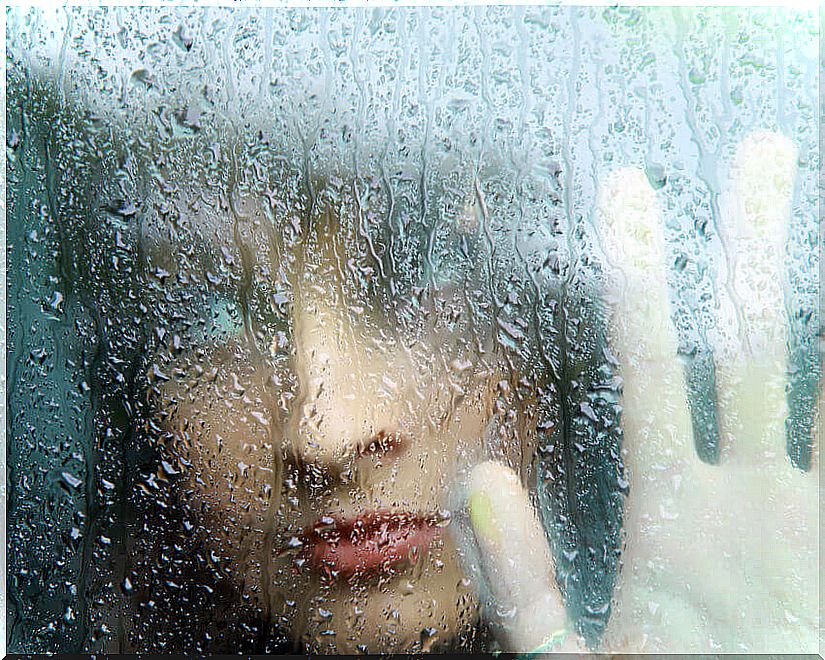Does The Weather Affect The Mood?

We are all aware of what and the weather influences our mood. In fact, most of us are affected in some way by the arrival of heat or rainy days, sunny days or gray days, for example. But how does this impact really work? Is it something merely psychological or does time have a real effect on our body?
Next we are going to see what the influence of the weather is on our mood and some curious facts that can be very useful.
Winter discourages us
With winter, in addition to the cold, comes the so-called seasonal affective disorder. In English many joke about it, since they know it by its acronym, SAD (Seasonal Affective Disorder), since “sad” means sad. But, nevertheless, for many people the cold is not funny at all.
It is believed that those with this disorder may be particularly affected by the lack of light during the darkest winter months. In fact, studies have found that when these people are exposed to sunlight, especially during the morning hours, they tend to feel better.

However, we could also be overestimating how much cold weather affects our mood. Some research has found that the incidence of this kind of “winter blues” is greatly exaggerated, and that most people are not affected by seasonal mood swings, meaning that the cold does not affect their mood as much. (as much as to suffer depression) as it seems.
Extreme weather can influence our empathy
Difficulties related to bad weather can cultivate empathy in people. In fact, at its maximum extreme, on no occasion other than when major catastrophes occur can it be seen to what extent the spirit of solidarity and community is ingrained in people.
Although it may seem that disasters bring out the worst in people and that they unleash unbridled selfishness and brutal competition for survival, the reality is very different, since people who cope with crises are actually very altruistic and help each other. to others.
Bad weather turns a bad day into a horrible day
If you’re having a good day, the bad weather probably won’t affect you too much. But if you feel bad as soon as you wake up, a cold and sad day could easily make your mood go from bad to worse.

In a 2008 study published in the journal Emotion, researchers assessed the personalities and moods of more than 1,200 adult men and women through daily questionnaires.
Analyzing the results, they found that climate-related factors such as temperature, sunlight, wind, and rainfall did not have a noticeable impact on positive mood, but temperature, wind, and temperature. Sunlight did have a negative effect on mood.
The increase in temperature had a positive effect on most people with negative mood, while the increase in the wind and the decrease in sunlight had a negative effect on most of the people with negative mood, although these effects they varied from one individual to another.
It was also found that sunlight can affect the way participants said they were tired. The results were inconclusive, but they do point to the need for more future research into the relationship between mood and climate.
Violent crime increases with the heat
Research suggests that weather may play a role in the incidence of violent crime, along with other factors. Researchers at the University of California at Berkeley analyzed 60 previous studies in the United States on violent crime rates and found a link between violence and heat, as well as extreme rainfall.
They found that in these circumstances intergroup conflicts (wars, armed conflicts) rose 14% while cases of interpersonal violence (rape, domestic violence, homicides) increased 4%.
Suicide could be linked to seasonal factors
Some research has suggested that suicides are more frequent in late spring and early summer, a phenomenon that was first observed in the 19th century. Although some studies have contradicted this finding, other research supports the existence of a seasonal peak in suicide.
People are happier in temperate climates
Some research has identified a link between the weather and levels of happiness. Thus, warmer average temperatures in winter and lower average temperatures in summer appear to be correlated with increased happiness.
In addition, mild winters and colder summers make it easy to enjoy the outdoors year-round, not only because they facilitate physical activity, but because spending time in the sun has been associated with lower levels of stress and increased wellness .









